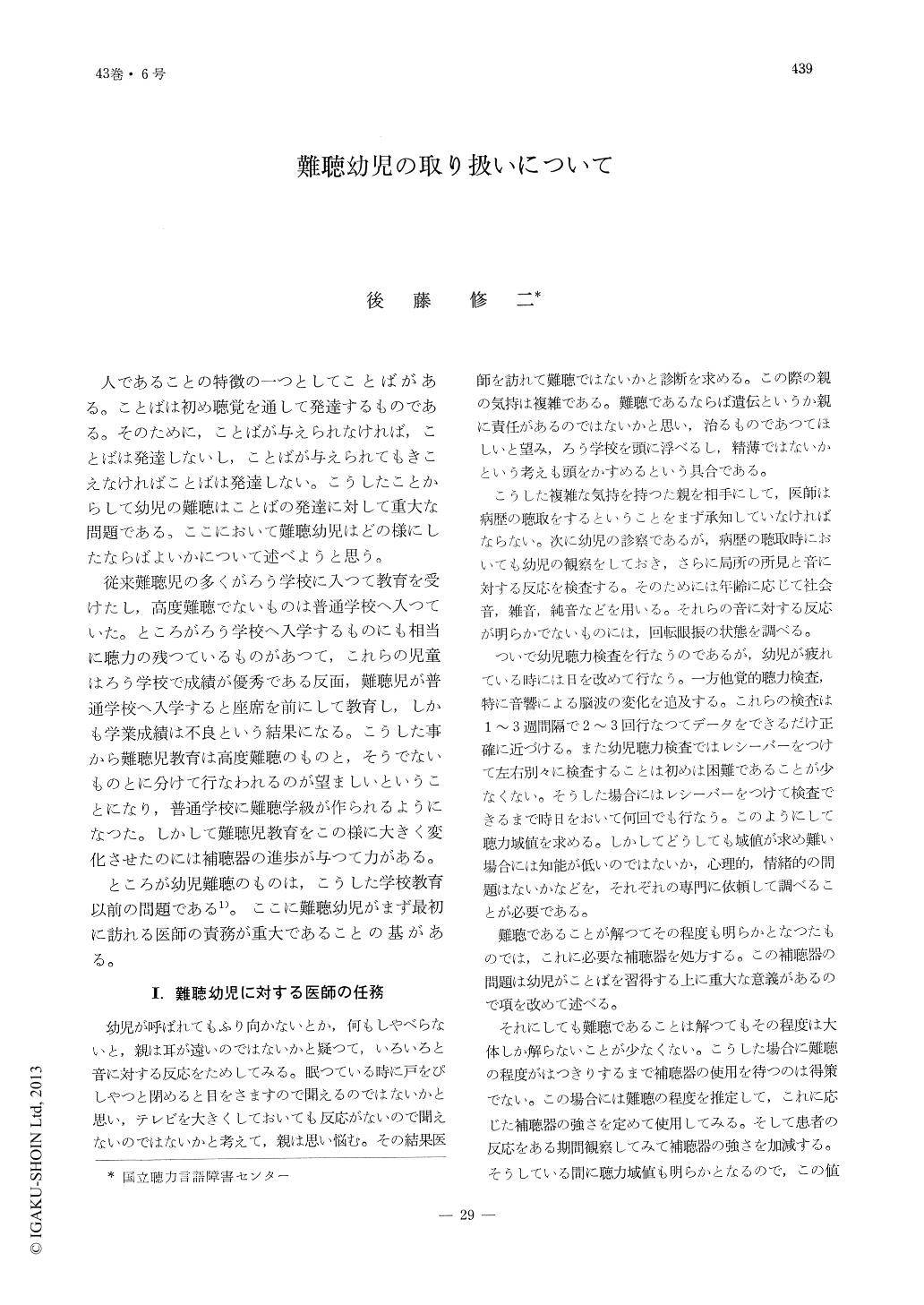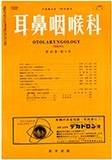Japanese
English
- 有料閲覧
- Abstract 文献概要
- 1ページ目 Look Inside
人であることの特徴の一つとしてことばがある。ことばは初め聴覚を通して発達するものである。そのために,ことばが与えられなければ,ことばは発達しないし,ことばが与えられてもきこえなければことばは発達しない。こうしたことからして幼児の難聴はことばの発達に対して重大な問題である。ここにおいて難聴幼児はどの様にしたならばよいかについて述べようと思う。
従来難聴児の多くがろう学校に入つて教育を受けたし,高度難聴でないものは普通学校へ入つていた。ところがろう学校へ入学するものにも相当に聴力の残つているものがあつて,これらの児童はろう学校で成績が優秀である反面,難聴児が普通学校へ入学すると座席を前にして教育し,しかも学業成績は不良という結果になる。こうした事から難聴児教育は高度難聴のものと,そうでないものとに分けて行なわれるのが望ましいということになり,普通学校に難聴学級が作られるようになつた。しかして難聴児教育をこの様に大きく変化させたのには補聴器の進歩が与つて力がある。
ところが幼児難聴のものは,こうした学校教育以前の問題である1)。ここに難聴幼児がまず最初に訪れる医師の責務が重大であることの基がある。
Unless the hard of hearing children are taken care of early enough the speech acquirement among them becomes a great difficulty. The author in his attempt of finding the best method by which such children may be treated make a study of the various methods undercurrent practice. Many shortcomings are found among them.
In most cases the diagnosis of hard of hearing in early childhood is not made early enough; and, even when so made the adopted treatment may be quite inadequate. The hearing aids prescribed may not be well chosen nor the instructions to their usage may not be scientifically well founded. The case may not be taken care of by a good follow-up.
The author lay a great emphasis on the following points in the treatment of the hard of hearing children. The early diagnosis,a good choice of hearing aids with proper instruction as to their usgae. A rigid follow-up of cases.

Copyright © 1971, Igaku-Shoin Ltd. All rights reserved.


